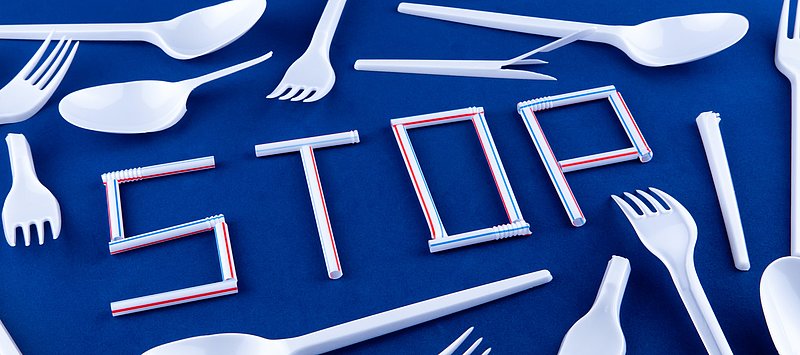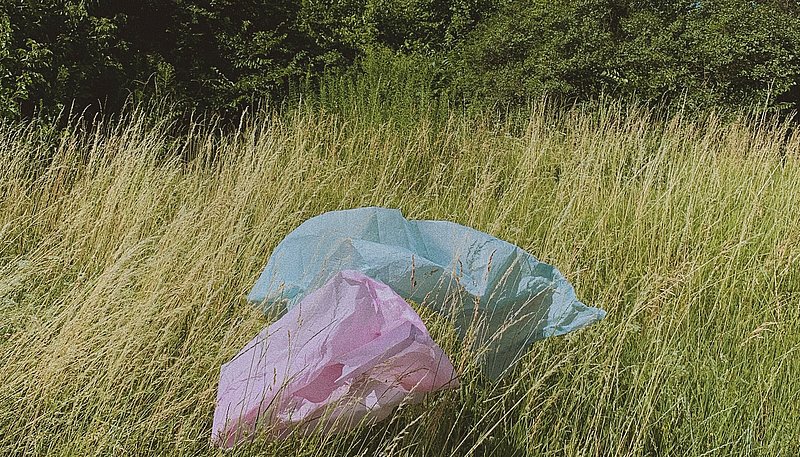Every year, millions of tons of plastic end up in our environment: in our rivers, on our fields, in our lakes and oceans. This includes many disposable items such as cotton swabs, disposable tableware, balloon sticks and balloons, food packaging, beverage cups, plastic cups, cigarette filters, plastic bags, foil wrappers or hygiene products - these are the 10 most common products found on Europe's beaches and seas.
From July 3, 2021, the time has come: many single-use plastic products will be banned in the EU - in concrete terms, this means that many products may no longer be produced throughout the EU. These include :
- Disposable cutlery and tableware
- Drinking straws
- Stirrers
- Cotton swabs
- Balloon wands
- To-go beverage cups (made of Styrofoam)
- Fast food packaging (made of Styrofoam)
- Disposable food containers (made of Styrofoam)
- Disposable plates, cups or cutlery made from bio-based or biodegradable plastics
- Cardboard that is made of or covered with only a small amount of plastic
And more: In Germany, certain disposable products such as cigarettes, beverage cups and certain hygiene products (pads, tampons, wet wipes) that are made of or contain plastic must also be given a special label. This label is intended to inform consumers about correct disposal and warn them about environmental damage caused by plastic.



